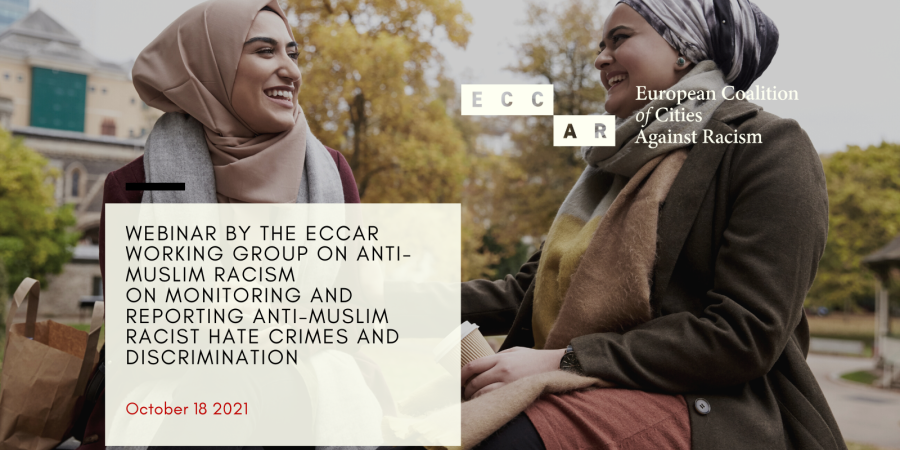
A recent report by the European Union Agency for Fundamental Rights (FRA) shows alarming figures on hate crime reporting across Europe. Only 9 out of 10 persons who have been victimized to hate crime, report the incident to the responsible authorities. The report noted that common reasons for underreporting were the lack of trust in authorities and the overwhelming bureaucracy of the reporting mechanisms. Moreover, over 40 % of Muslim respondents who had experienced bias-motivated harassment or violence left their experiences unreported because they felt that reporting would not change anything.
ECCAR recognizes that cities and local governments play a significant role in changing the situation. Monitoring and reporting mechanisms can be well initiated on a local level, in cooperation on the one hand with NGOs and on the other hand with state authorities. Data collected based on low threshold access for the victims of hate crime and discrimination can be aggregated and reported to state authorities. This will make victimization more visible and, followingly, contribute to establishing more robust policies regarding hate crime and discrimination.
Against this background, ECCAR’s working group on anti-Muslim racism organized on October 18, 2021, a webinar on the subject matter. The participants were representatives of ECCAR member cities from Turkey, Germany, Belgium, Sweden, Italy, Spain, Switzerland, and France. The webinar hosted three guest speakers who shared their expertise in monitoring and reporting anti-Muslim hate crimes and discrimination. Mr. Griffin Ferry, representing the Office for Democratic Institutions and Human Rights (ODIHR), presented the importance of cooperation between authorities and civil society actors in hate crime reporting. He also explained the indicators developed by ODIHR that can be used to recognize and differentiate hate crimes from other offenses. Ms. Hanna Attar from the organization CLAIM, Alliance Against Islamophobia and anti-Muslim Hate, presented the project I Report, a nationwide reporting portal in Germany for anti-Muslim hate crime and discrimination. I Report aims to contribute to the forming of unified reporting of incidents to achieve more accurate statistics. Victims of hate crime and discrimination can also get help in connecting with professional counseling centers across Germany via I Report. Finally, Ms. Iris Aviñoa contributed to the webinar by giving an example of a good practice implemented on a local level in tackling anti-Muslim racism, especially in reporting anti-Muslim prejudiced discrimination. Ms. Aviñoa is one of the authors of the recently published report by Barcelona Discrimination Observatory.
At the end of the webinar, representatives of ECCAR member cities shared their experiences with already established monitoring and reporting mechanisms. They also discussed their plans to implement such measures in their respective cities with the three expert guest speakers. The webinar ended with an optimistic view towards the future with further forthcoming initiatives such as training city officials on hate crime, tackling anti-Muslim discrimination at the workplace, and awareness-raising campaigns for the wider public.
Learn more:
